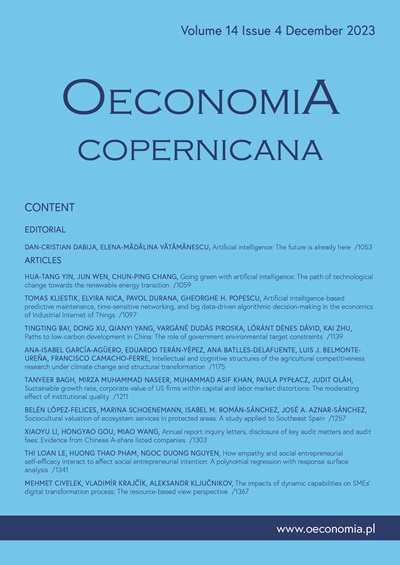酒店业的集聚与竞争动态:基于层次分析法和地理信息系统(GIS)数据的地理加权回归分析
IF 10.8
1区 经济学
Q1 ECONOMICS
引用次数: 1
摘要
研究背景:选址在其他具有同等活动的机构旁边的影响是一个具有严重和深远影响的决定,不仅从选址决策的角度来看,而且从竞争战略、定价或促销决策的角度来说。文献提供了接近竞争对手的负面影响(市场份额的侵蚀)的证据,但也有与需求吸引力增加相关的好处(吸引力效应)。这一现象在酒店业中尤其令人感兴趣,因为酒店集中在某些旅游资源周围,是酒店经营者评估这些矛盾影响时做出决策的关键因素。本文的目的:从酒店业集聚与竞争对抗的关联性出发,我们的研究旨在检验这种对抗是否是由地理位置驱动的,以及垂直和水平差异因素如何使其失衡。方法:基于地理信息系统的使用和地理加权回归模型的估计,该模型包含3153家位于西班牙的欧洲酒店,法国和英国。研究结果和附加值:我们通过提供关于集聚和竞争的同时效应的新发现,扩展了与选址决策相关的集聚和竞争理论机构。具体而言,这项研究有助于填补它们对定价的综合影响以及一种优于另一种的条件方面的空白。结果表明,地理位置和酒店的作用?在解释集聚和竞争效应的不对称性时,在线声誉比酒店类别更具决定性的分化因素。本文章由计算机程序翻译,如有差异,请以英文原文为准。
Dynamics of agglomeration and competition in the hotel industry: A geographically weighted regression analysis based on an analytical hierarchy process and geographic information systems (GIS) data
Research background: The effects of locating next to other establishments of equivalent activity is a decision with serious and far-reaching implications, not only from the point of view of location decisions but also with regard to competitive strategy, pricing, or promotion decisions. The literature provides evidence of the negative effects of being proximate to competitors (erosion of market share), but there are also benefits associated with the increased attraction of demand (attraction effect). This phenomenon is of particular interest in the case of hospitality, where hotel concentrations can be found around certain tourism resources, and is a crucial factor in hoteliers' decisions as they evaluate these contradictory effects.
Purpose of the article: Drawing from the relevance that the confrontation between agglomeration and competition has in the hotel industry, our study aims to examine if this confrontation can be driven by geographical location and how both vertical and horizontal differentiation factors can unbalance it.
Methods: Based on the use of geographical information systems and the estimation of a geographically weighted regression model with a wide dataset that includes 3,153 European hotels located in Spain, France and the United Kingdom.
Findings & value added: We extend agglomeration and competition theoretical bodies related to location decisions by providing new findings about their simultaneous effect. Specifically, this study contributes to filling the gap regarding their combined effects on pricing and the conditions under which one prevails over the other. Results show that the role of geographical location and a hotel?s online reputation are more decisive differentiation factors than hotel category when explaining the asymmetry of the effects of agglomeration and competition.
求助全文
通过发布文献求助,成功后即可免费获取论文全文。
去求助
来源期刊

Oeconomia Copernicana
ECONOMICS-
CiteScore
13.70
自引率
5.90%
发文量
26
审稿时长
24 weeks
期刊介绍:
The Oeconomia Copernicana is an academic quarterly journal aimed at academicians, economic policymakers, and students studying finance, accounting, management, and economics. It publishes academic articles on contemporary issues in economics, finance, banking, accounting, and management from various research perspectives. The journal's mission is to publish advanced theoretical and empirical research that contributes to the development of these disciplines and has practical relevance. The journal encourages the use of various research methods, including falsification of conventional understanding, theory building through inductive or qualitative research, first empirical testing of theories, meta-analysis with theoretical implications, constructive replication, and a combination of qualitative, quantitative, field, laboratory, and meta-analytic approaches. While the journal prioritizes comprehensive manuscripts that include methodological-based theoretical and empirical research with implications for policymaking, it also welcomes submissions focused solely on theory or methodology.
 求助内容:
求助内容: 应助结果提醒方式:
应助结果提醒方式:


